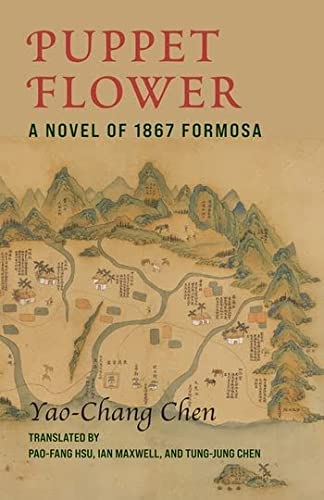Puppet Flower
In 1867, fourteen American shipwreck survivors reached the shores of southern Taiwan only to be slaughtered by indigenous people. The tale of the U.S.’s retaliatory military operation to Taiwan (Formosa) is the historical framework of author Yao-chang Chen’s ode to a pivotal moment of Taiwanese identity. Translated for the first time into English, Chen’s meticulously researched story elevates the historical events he says had “successive repercussions in Taiwan.”
Chen introduces the central players in this drama: French-born American diplomat, Charles W. Le Gendre; Tauketok, chief of the Tuillassock tribe; and Butterfly, a woman of mixed race who straddles two drastically different worlds. The Americans stage two attempts to find the perpetrators of the earlier massacre, but they fail miserably in the face of the united and collaborative defense of several indigenous tribes. Chen charts how Le Gendre and Tauketok brokered their way toward peace in a complex multilingual and multiethnic milieu. The result would be the South Cape Agreement, signed by Le Gendre and Tauketok on February 28, 1869, which effectively safeguarded sailors navigating the Taiwan Strait.
Chen’s account is not necessarily pulse-pounding, unspooling the story rather mechanically (but perhaps this is the translation). However, its ultimate value lies in its unique reimagining of an obscure event in “a turning point” year in Taiwanese history. Told from a multitude of perspectives, particularly of indigenous peoples, Chen’s story does not sacrifice history and complicated colonial relations for cute dramatic contrivances. This is historical fiction with an emphasis on the former.










